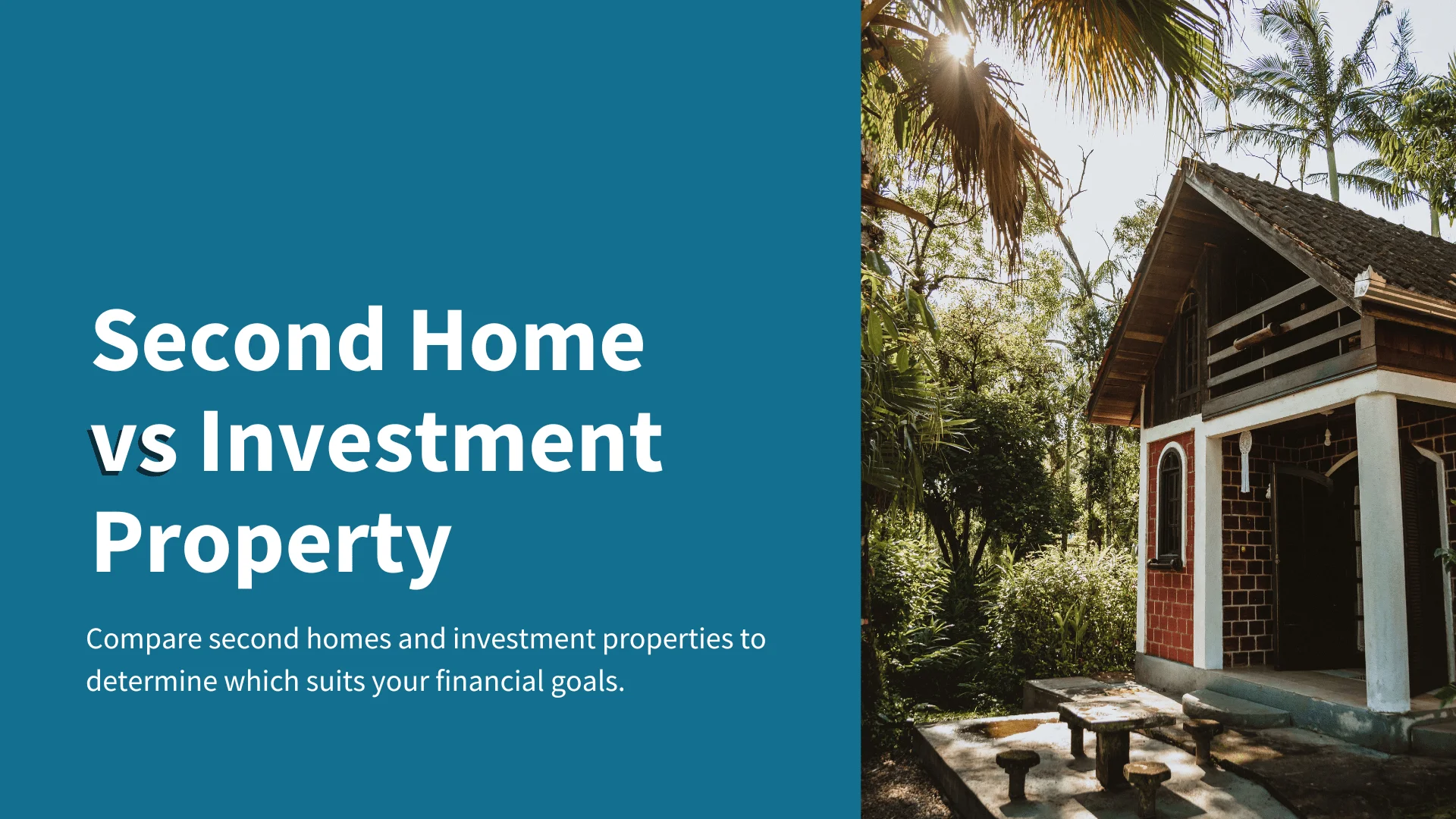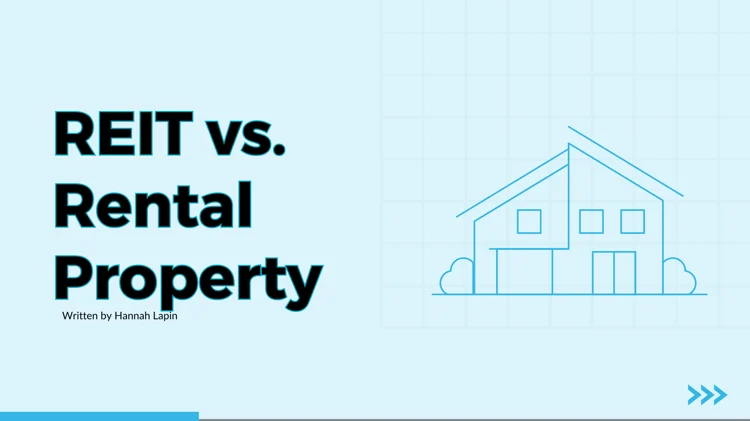Are you ready to expand your investment portfolio and add a real estate asset? Investing in a second home for personal use or an investment property for rental income are both excellent investment strategies. Exploring the similarities and differences between each is essential in making the right decision for your investment goals.
What is a second home?
A second home is a property an investor purchases for personal use. You may live in your second home for part of the year or use it as a vacation home.
To be considered a second home by the Internal Revenue Service (IRS) and lenders, the property must meet specific criteria, including being a single-family property. This means it must be a freestanding, single-unit property with sufficient residence for only one family per visit.
Most lenders also prohibit a second home from being further than 50 miles from your primary residence or under the supervision of a property management company. Timeshares are also excluded from being considered a second home. Essentially, a second home is not your primary residence or an asset you use to earn rental income.
What is an investment property?
An investment property is an asset you purchase to generate rental income. You may turn the investment into a short-term or long-term rental property to generate income, either through monthly mortgage payments or built equity.
To be categorized as an investment property, lenders typically prohibit investors from occupying the home. Investment properties can have more than one unit and may be further than 50 miles from the investor’s primary residence.
In fact, some rental properties may be located in a resort or vacation area to target short-term renters. It’s also allowed (and common) for a property manager to control your real estate investment property.
An investment property may be a multi-family residence with up to four units, a commercial property, or a condominium. Investment properties can’t be primary residences.
Differences Between Second Homes and Investment Properties
There are a few key differences between a second home and an investment property. These differences have significant income, tax, and financing implications.
The most significant difference between a second home and an investment property is the intended use of the asset.
A second home is designed for personal use, whereas an investment property is for profits. Investment properties generate taxable income, whereas a second home doesn’t. However, this also means you can deduct interest and expenses on the investment property according to current tax rules.
There are also some differences in financing eligibility for the two property types. Mortgage lenders typically require higher credit scores and down payment for investment property financing.
A second home’s down payment is usually between 5 to 10% of the purchase price, and investment properties typically have stricter lending requirements with between 15 to 25% down payments on most home loan types.
The maximum debt-to-income (DTI) and minimum cash reserve requirements are similar for both investment properties and second homes. Most lenders only allow a maximum DTI of 45% and often require up to six months of cash reserves for both property types. Alternative loans, like debt-service coverage ratio (DSCR), may be available with better minimum down payment and credit score requirements.
Similarities Between Second Homes and Investment Properties
There are some similarities to know between a second home and an investment property, too. Neither a second home nor an investment property is a primary home, meaning investors can’t live on the property full-time.
Investment property loans are also available for both asset types. However, the mortgage terms may vary between each and the associated lender. Second homes, just like investment properties, aren’t eligible for FHA loans.
Sometimes, determining whether an asset is a second home or investment property is complex. Some investors may purchase a property as a second home with the intention of renting it out occasionally.
In this case, the 14-day or 10% rule applies. Most lenders consider any property you live in for less than two weeks or fewer than 10% of the rented days in a single year to be a rental property. In other words, renting a property to others for 14 or more days in a year will qualify it as an investment property.
Second Home vs Investment Property Mortgage Rates
What especially matters to buyers is each investment type’s expected mortgage rates. Compared to a traditional mortgage on a first home, investors can typically expect higher mortgage rates with both second homes and investment properties.
Lenders consider both loan types to be riskier because a homeowner is more likely to pay their primary residence mortgage if they’re in a difficult financial position.
Second Home Mortgage Rates
The interest rate on a secondary home is typically higher than a primary residence but not as high as an investment property. While interest rates on investment property loans fluctuate, you can usually expect them to be, on average, a half point higher than primary residence rates.
Investment Property Mortgage Rates
An investment property typically has the highest interest rates. While this number also fluctuates based on the economy and the specific lender, it’s usually an average of 0.50 to 0.75 higher than standard rates.
Second Home vs Investment Property Taxes
An investment property and a second home are treated differently when it comes to tax implications. So while both assets come with property taxes and tax benefits, they differ regarding capital gains and their eligibility for tax deductions.
Mortgage Interest
Mortgage interest is the money investors pay to borrow, and whether your asset is a secondary home or an investment makes a difference.
Paying taxes on a second home is similar to paying taxes on your primary residence. This means you may be eligible to deduct mortgage interest if you’re within the $750,000 debt limit ($375,000 for married couples).
Owners of multiple properties may quickly reach this debt limit, meaning you can no longer deduct mortgage interest. Also, if you itemize your deductions, you may get additional state and local deductions.
However, with an investment property, your mortgage interest is fully tax-deductible. An investment property also allows for other tax benefits, like the ability to deduct depreciation, which is the expected wear and tear of the asset. Remember, though, deducting depreciation could lead to a higher tax bill when selling the home.
Rental Income
As long as you collect rental income for less than two weeks on a second home, you won’t have any tax implications. Because a second home isn’t designed to generate income, you also can’t use any projected rental income to qualify for the loan. You also can’t write off any expenses if you don’t claim income. With an investment property, you must report rental income and pay taxes.
Expense Write-Off
A second home investment, or a property you rent out for less than 14 days per year, doesn’t allow for the same tax benefits as an asset categorized as an investment.
An investment property that meets the categorization criteria allows you to write off expenses, including repairs, maintenance, travel to and from the property, property management company fees, and any other costs you incur.
Selling the Home
Eventually, you may want to sell your home, and whether it’s a second home or investment property makes a difference. Selling a second home or investment property differs slightly from a personal residence.
When selling a second home, you’ll be liable for paying capital gains taxes unless you qualify for primary residence exclusions. Investment property owners can defer capital gains if they sell and purchase a similar investment type through a 1031 Exchange.
Of course, consulting with a tax professional for tax advice is always a good idea. Additionally, tax laws are constantly changing, so it’s crucial to stay up-to-date with each tax year.
Is a second home considered investment property by the IRS?
A second home is not an investment property. Unlike investment properties, second homes are for personal use, for example, as a vacation home. IRS rules clearly determine an asset’s categorization. Real estate assets that are rented out less than 14 days of the year and that you use as a secondary residence are a second home, not an investment property.
Can I rent out a second home?
Second home owners can rent out their property for up to two weeks per year. Renting the property for more than this time allotment and still categorizing it as a second home can lead to expensive consequences. It’s important to discuss the mortgage requirements with your lender on transitioning a second home to an investment property loan to avoid mortgage fraud.
What is the downside of a second home?
Owning a second home can offer equity and tax benefits. However, a second home isn’t an investment property, so it’s not usually eligible for rental income. You also can’t write off operating expenses, like property maintenance or repairs.
Purchasing a second home typically requires a larger down payment, and you’ll now be responsible for more mortgage debt. Once you acquire the property, you’ll have to cover property taxes, utility expenses, insurance, repairs, renovations, and any other expenses related to the property, all without earning income.
Of course, one of the biggest downsides of a second home is capital gains taxes, but there are ways to lower this obligation.
What is the downside of a second home?
Owning a second home can offer equity and tax benefits. However, a second home isn’t an investment property, so it’s not usually eligible for rental income. You also can’t write off operating expenses, like property maintenance or repairs.
Purchasing a second home typically requires a larger down payment, and you’ll now be responsible for more mortgage debt. Once you acquire the property, you’ll have to cover property taxes, utility expenses, insurance, repairs, renovations, and any other expenses related to the property, all without earning income.
Of course, one of the biggest downsides of a second home is capital gains taxes, but there are ways to lower this obligation.
Is a second home a good investment?
Buying a second home can be a profitable investment with the right home loan and planning. As you pay your mortgage lender on the second home, you’ll build equity, which you can use to secure financial stability. A second home may also be a good investment if you travel a lot and want to save on hotel or rental costs.
Consider your intentions with the property when choosing a second home vs an investment property. Discussing your investment goals with an experienced lender can help you explore and choose the best option.






